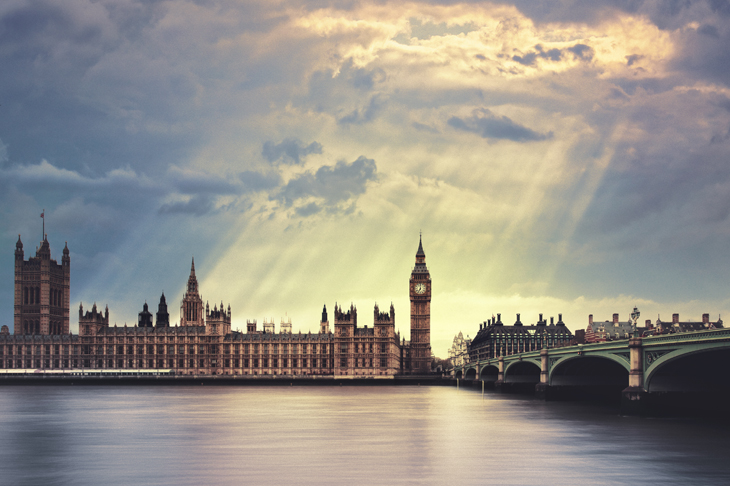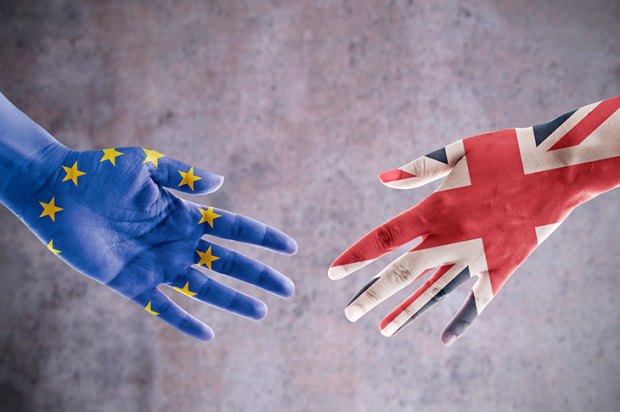Who should govern Britain? This has always been the most contentious question in British politics. Magna Carta, the Reformation, the Civil War, the Glorious Revolution and the Reform Acts were all struggles over this fundamental point.
Brexit asks this question twice over, so we should not be surprised by how divisive an issue it has become. It is about the extent to which the writ of the European Union should run in the United Kingdom — but also about the relationship between the people and parliament. By an overwhelming majority, MPs legislated to let the public decide. But ever since the voters returned the opposite answer to what the Commons was expecting, MPs have struggled to come to terms with the result. Too many of them have been preoccupied with neutering or overturning it rather than making it work.
The problem is that both EU membership and referendums run contrary to the British constitutional tradition. Neither sit easily with our system of government.
The Reformation ingrained a particular view of sovereignty that makes it hard to accept the jurisdiction of a supranational body. Our thinking to this day is still shaped by Thomas Cromwell’s decision to define England as an empire in which the king was the authority on all matters. As Hugo Young reflected in This Blessed Plot, an approving history of Britain’s EU membership, the 1957 Treaty of Rome sat uneasily with the 1533 Act in Restraint of Appeals to Rome, which effectively ended the jurisdiction of the Roman Catholic Church in England. Over time, Cromwell’s doctrine developed so the monarch in Parliament was sovereign.
The idea persists that Parliament can ultimately do what it wants. It is no coincidence that it was David Lidington, a Tudor historian, who argued in cabinet that MPs are overthinking the backstop and that Parliament could simply decide to override it if it became intolerable. As some MPs like to say, the British constitution can be summed up in eight words: what the sovereign in Parliament enacts is law. There is no higher authority.
This definition of parliamentary sovereignty always rested uncomfortably with EU membership. If Parliament can do what it wants, why could it not do something that went against EU rules? To get around this problem, the European Communities Act had to be treated as a superior piece of law. This meant that if any new piece of legislation conflicted with it, the act trumped it. Theresa May’s Brexit deal, the withdrawal agreement, would have the same status if it is ever passed. But this rubs up against the concept that no Parliament can bind its successors. Such superior legislation does not fit well with the British system of government.
This is why EU membership was never comfortable for the United Kingdom, but it does not explain why Brexit has become so contentious. The lion’s share of the blame for that lies with Parliament’s decision to offer the public a referendum without thinking through the consequences.
Referendums are a relatively rare device in this country and have only been used when the government, or governing parties, are so divided on an issue that the easiest thing to do is to hand it over to the electorate. But referendums clash with parliamentary sovereignty: what happens if the people and Parliament disagree? Since 23 June 2016 we have been finding out. The answer is not pretty.
When most MPs voted for the referendum, they did so in the belief that Remain would win. After all, it had the support of the government, the official opposition, the devolved administrations in Scotland and Wales, the Confederation of British Industry and the Trade Union Congress. However, Leave triumphed. Straight afterwards, most MPs thought they should honour the result. It would have been too much simply to tell the country that Parliament wouldn’t have given them the choice if it knew what they were going to do with it. So 498 MPs voted to trigger Article 50, the two-year process for leaving the European Union.
But because the referendum asked a straight Leave or Remain question, rather than going into detail about how this country should exit, there began endless debates about what Brexit should mean. A governing class that was largely horrified by the decision, approached it as a damage limitation exercise rather than as an opportunity.
Matters were further complicated by Theresa May’s calamitous election last year. She said she needed to go to the country to secure a larger majority, the better to negotiate a clean Brexit. When voters instead returned a hung parliament, many in both Houses said she had no mandate to fulfil her manifesto commitments to take Britain out of the single market and the customs union.
As time has gone on, more and more MPs have become explicit about their desire to reverse the referendum result. But with the odd exception, such as Ken Clarke, they accept that this could only be done with another referendum. A second referendum, though, would face problems that no previous one has. Voters would, understandably, ask why they were being asked to vote again before the result of the previous referendum had even been implemented. There would also be suspicion about whether this plebiscite would be honoured if it didn’t go the way that Parliament wanted it to. Because even if Leave lost in a second referendum, there would be many voters who would remain loyal to the result of the first.
In hindsight, it clearly would have been better for a party to have won a parliamentary majority for leaving the EU, then held a referendum on this question. This would have meant that, in the event of a Leave vote, Parliament and the people were aligned. If this had happened, Brexit would have happened far more smoothly and far more quickly.
The question of who governs is always divisive. Two and a half centuries on from the end of the English civil war, an MP could still declare — to much agreement — that ‘I judge a man by one thing, which side would he have liked his ancestors to fight on at Marston Moor?’ It remains to be seen if Brexit will be such a cultural touchstone centuries hence.
But the question of who governs does need to be settled — it cannot just be allowed to hang there. Once it is, though, the winners ought to remember Churchill’s advice: in victory, magnanimity.
Got something to add? Join the discussion and comment below.
Get 10 issues for just $10
Subscribe to The Spectator Australia today for the next 10 magazine issues, plus full online access, for just $10.
You might disagree with half of it, but you’ll enjoy reading all of it. Try your first month for free, then just $2 a week for the remainder of your first year.















Comments
Don't miss out
Join the conversation with other Spectator Australia readers. Subscribe to leave a comment.
SUBSCRIBEAlready a subscriber? Log in